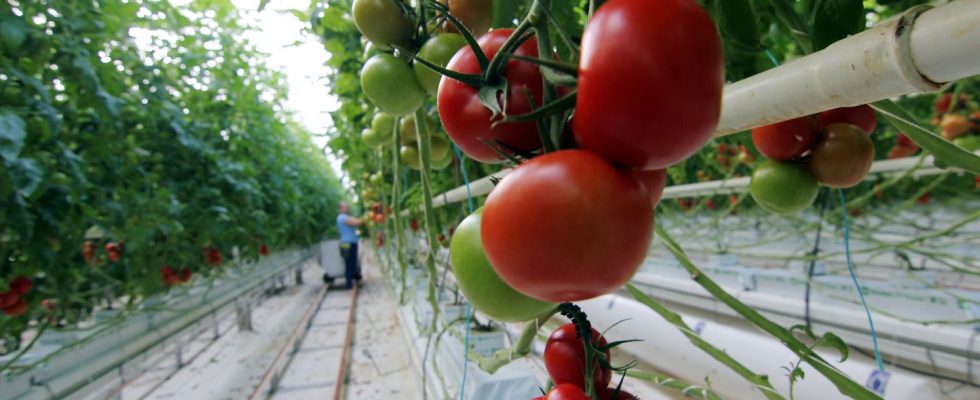They have arrived on the shelves of our supermarkets in recent weeks. Who ? French tomatoes! Like every year, they display their redness in spring with the promise of a local product obviously reinforced by the systematic use of the blue, white and red flag.
The somewhat informed consumer will have noticed that in the gardens, the tomatoes have still not been planted. And that the plants are currently displaying neither yellow flowers nor very red fruits. The reason is simple: to have summer fruits at the beginning of spring, market gardeners use heated greenhouses, often with gas.
A phenomenon which is not new and has existed for years, despite criticism and the crazy inflation of the cost of energy. What consumers are perhaps a little less aware of is that part of this production can benefit from a completely legal organic designation. And that doesn’t please part of the profession at all.
In Brittany, where tomatoes in heated greenhouses are particularly developed, the network of organic farmers has long mobilized to try to ban the sale under the “organic” label. In vain. In 2023, the Council of State ruled in favor of the large cooperatives who are pushing hard to keep their label all year round. With a weighty argument: the ban did not concern imported products and therefore caused harm to French greenhouse growers.
The risk of being less credible
From 2019 to 2023, the sale of organic vegetables grown in heated greenhouses was prohibited before May 1. With the repeal of the text by the Council of State, it is now possible all year round, to the great dismay of its opponents. “Destabilizing the organic regulation by altering its essence, by distorting its content, amounts to making it less credible in the eyes of every citizen-consumer, endangering the organic sectors,” denounces the Gab-Frab network.
“The situation is becoming completely irrational,” regrets this market gardener from Ploërmel quoted in a press release. In an attempt to alert consumers, the association launched a communication campaign repeating its arguments behind a clear message: “The organic tomato season is from June to October. »
Tomatoes in heated greenhouses are strongly criticized for their carbon footprint, because they emit on average between four and ten times more CO2 than a seasonal vegetable. According to Ademeits greenhouse production would produce 2.2 kg of CO2 per kilo produced, when a seasonal French tomato would produce 0.3 kg.
The profession defends itself by explaining that the use of heated greenhouses allows us to consume much less water and pesticides. Arguments swept aside by opponents.

